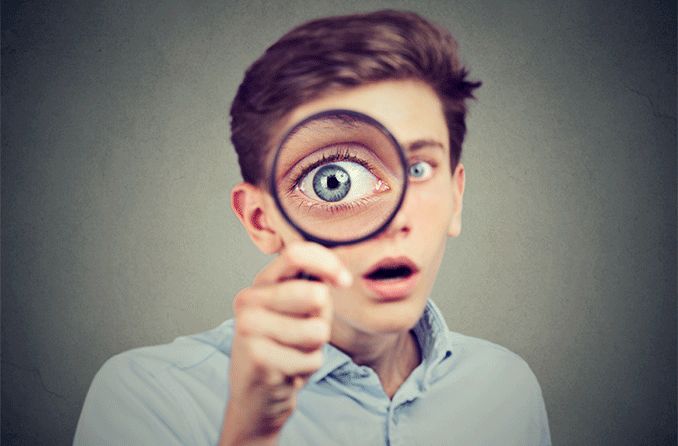Are magnifying glasses bad for eyesight? It’s no surprise that this is a question many people have been asking. After all, magnifying glasses have become increasingly popular in recent years, with more and more people using them to get a closer look at objects or read fine print. But while magnifying glasses are handy tools that can be used to great advantage, they also come with some risks – particularly when it comes to your eyesight. In this blog post, we’ll take a look at whether or not magnifying glasses can damage your eyes and how you can keep your vision healthy while using them. So grab your favorite pair of spectacles and let’s dive right in!
# The Magnification Power of Magnifying Glasses
When it comes to magnifying glasses, one of the most important things to consider is the magnification power. While smaller magnifying glasses usually have less powerful lenses, larger ones can reach 5x or even 10x magnification. It’s important to note that a higher level of magnification doesn’t necessarily mean better viewing quality – in some cases, it can actually make things more difficult to see clearly. For this reason, it’s best to stick with lower levels of magnification when using a magnifying glass for any sort of extended period.
## Effects on Eyesight
While looking through a magnifying glass is generally safe as long as you stay within the recommended level of magnification, long-term use has been linked to some adverse effects on eyesight. Prolonged use can cause eye strain and fatigue, leading to headaches and blurred vision. In some cases, it can even lead to more serious issues like myopia (nearsightedness) or astigmatism. For this reason, it’s important to limit the amount of time you spend looking through a magnifying glass and be sure that your prescription glasses are up-to-date before doing so.
## Eye Exams Before Use
Before using any type of lens – including a magnifying glass – it’s important to get an eye exam first. This will ensure that your vision is healthy enough for use and that you don’t have any underlying conditions that could pose an issue while looking through the lens. It will also allow your doctor to catch any signs of strain or damage from prolonged use early on so they can be treated accordingly before they become a bigger problem.
## Alternatives to Magnifying Glasses
If you find yourself needing some extra help seeing details or reading small print but don’t want the risk associated with using a traditional magnifying glass, there are plenty of other options out there! Digital readers are becoming increasingly popular due their portability and ease-of-use; all you need is an internet connection and you can increase text size at will without putting unnecessary strain on your eyes. Additionally, if you need help seeing objects with more clarity than what traditional lenses allow for, there are tools like digital microscopes available which provide incredibly high levels of magnification without any danger whatsoever!
## Conclusion
Looking through a magnifying glass is not always dangerous – as long as you stick with lower levels of magnification and get regular eye exams beforehand, there shouldn’t be any issues associated with its use. But if swapping out your traditional lenses for something digital isn’t feasible in certain situations (such as when examining antiques or coins), then being mindful and taking regular breaks during extended periods are essential in order to protect your eyesight from potential harm over time!












